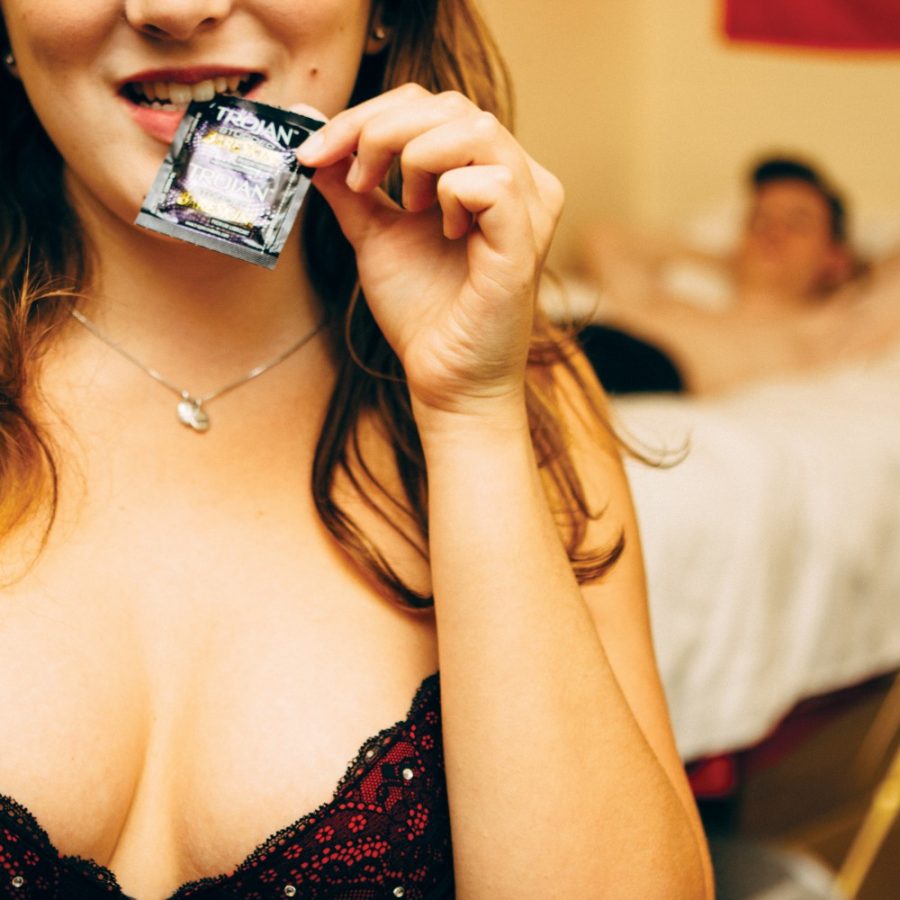Some people seem to have Valentine’s Day down to a science. They send thoughtful love letters, chocolates, and even remember to post something swoon-worthy on social media before the day is over. Meanwhile, the rest of us struggle to plan a date night that doesn’t involve Netflix and takeout, or worse, we forget about the holiday all together.
But is there really a science to the feelings we celebrate on February 14 every year?
Katalin Gothard, UA professor of physiology, explained a few facts about the science behind common phrases associated with love and relationships. Gothard studies the mechanism of the human and non-human primate brain that supports emotional and social behavior.
Hopefully these tips will help up your dating game this year. At any rate, you can impress your date with some of these interesting science facts if the conversation starts to lag.
Love At first sight
The phrase may sound cliché, but it turns out eye contact does play an essential role in establishing a connection with someone.
“A prolonged, loving eye contact actually can induce in the body a state of arousal that is not the kind of arousal that you feel when you are uncertain or fearful or apprehensive about something, but the kind of arousal you feel when you are expecting something good to happen,” Gothard said.
Gothard went on to explain this is due to the parental attention we received as a baby, especially from our mothers. Prolonged eye contact taps into the ‘learned intimacy’ we experienced as an infant and can cause feelings of excitement and comfort.
A stomach full of butterflies
We’ve all heard the term, but have you ever wondered what those ‘butterflies’ actually were?
The butterflies are actually a form of autonomic arousal, Gothard said. The autonomic nervous system activates reactions in our bodies without our control.
It also regulates our internal organs, such as our heart, lungs, blood pressure, sweat and salivary glands. Gothard explained this can be the cause for other symptoms such as flushed skin, sweaty palms, and dry mouth.
For example, trying to make a good impression or craving positive feedback from someone we care about triggers the autonomic nervous system, because the brain labels such situations as being of high importance, Gothard said. Once this happens, our bodies may feel and do things that are outside of our control.
RELATED: Horror movies in winter: what makes us enjoy fear?
My heart skipped a beat
There are many clichés about the most important muscle in our body. ‘My heart skipped a beat,’ ‘someone tugged at my heartstrings’, and ‘feeling heartsick’ are just a few examples.
Our heart rate can be in or out of coordination with our breathing, Gothard said. The autonomic nervous system also plays a vital part in this; when we’re around someone we’re attracted to, the brain labels the situation as one of high importance, similar to an emergency.
“The heart gets an extra jolt, and you feel it in your chest wall,” Gothard said. “We feel that the heart contracts more vigorously and fills up more with blood.”
The right chemistry
Skip the love potion and go for the oxytocin this Valentine’s Day. Oxytocin has been labeled as the ‘cuddle hormone’, but Gothard explains it’s more than just a love hormone.
“It’s a hormone of social bonding,” Gothard said. “A secretion of the hormone is favored by cuddling and holding and touching, but it can also manifest in how attentive and attuned you are to somebody, even if that person is shown on a video.”
Gothard explained it doesn’t necessarily have to be bonding between humans, as other species secrete this hormone as well. When you cuddle a pet, the hormone levels increase in your brain, but they also increase in the brain of the pet, Gothard said.
So yes, your dog or cat can be your valentine this year.
In addition to aiding bonding, high levels of oxytocin can lead to protectiveness and even aggression, as seen in the way mother bears protect their cubs, Gothard explained. “It [oxytocin] makes you very protective of people who you’re bonded to, but makes you less attuned and less interested in the outsiders who you’re not attuned to,” Gothard said.
RELATED: UA researcher awarded $10.3 million to study Alzheimer’s in women
Science will only get you so far
When it comes down to it, the best way to prepare for love and attraction is to build relationships with everyone, not just our romantic interests, Gothard said.
“The ability to feel compassion and empathy is basically the cornerstone of every good relationship, and that is not dependent on a hormone or a particular brain area, that is dependent on practice,” Gothard said.
Hopefully these tips will help you out in the love department this year. If all else fails, just remember a little chocolate goes a long way—and it doesn’t take a rocket scientist to figure that out.
Follow Hannah Dahl on Twitter.









